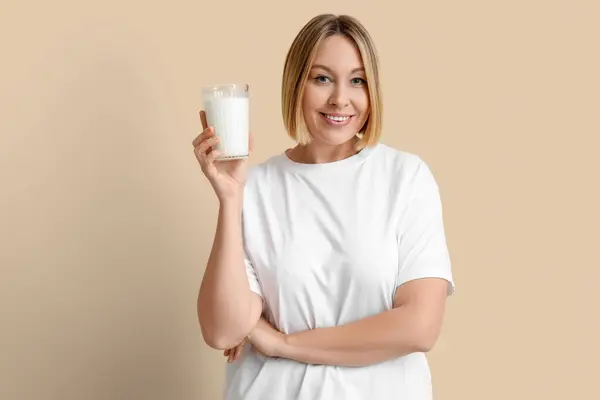Maintaining strong bones is a vital health priority for women over 50. As the body ages, the risk of osteoporosis and fractures increases due to declining bone density. Proper nutrition, especially adequate calcium and vitamin D intake, plays a critical role in preserving bone strength and overall skeletal health. While many options for milk exist on the market, goat milk emerges as a uniquely beneficial choice, offering a powerful combination of nutrient density and digestibility that supports bone health better than many alternatives.

Why Goat’s Milk is Best for Bone Health: The Superior Choice for Women Over 50
Goat milk stands out for bone health primarily because of its rich mineral profile and bioavailability. It contains significant amounts of calcium and phosphorus—minerals essential to the maintenance and repair of bone tissue. What makes goat milk exceptional is how easily these nutrients are absorbed thanks to smaller fat globules and a slightly acidic pH. This improves digestion and means the bones can access what they need without undue metabolic stress.
For women over 50, who often face decreased absorptive efficiency and gastrointestinal sensitivity, goat milk offers a gentle yet potent nutritional boost. It provides:
- About 33% of the daily recommended calcium intake per 8-ounce serving.
- Higher bioavailability of calcium compared to cow’s milk, which means more calcium actually reaches the bones.
- Magnesium and potassium, both important for bone cell function and maintenance.
- Naturally occurring vitamin D in a small but effective amount, supporting calcium absorption.
Clinical studies suggest that goat milk may enhance bone mineral density more effectively than some other dairy options, catering especially well to the nutritional needs of menopausal and postmenopausal women. Unlike cow’s milk, the smaller fat molecules and different protein structure of goat milk often result in less digestive discomfort, a key factor for ongoing dietary adherence.
Beyond Goat’s Milk: The Benefits of Other Types of Milk for Bone Strength
While goat milk is a compelling winner, it’s important to consider other milk types and their roles in bone health. Cow’s milk has been the traditional go-to, packed with calcium and often fortified with vitamins A and D. Its widespread availability and affordability make it a practical option. However, some individuals experience lactose intolerance or milk protein allergies, limiting its use.
Plant-based milks, such as almond, soy, and oat milks, have surged in popularity, especially among those seeking dairy-free options. These varieties are increasingly fortified with calcium and vitamin D, yet their natural content of bone-building minerals varies. For instance, soy milk closely mimics cow’s milk in protein content and calcium, and some studies indicate it supports bone health in postmenopausal women albeit to a lesser degree compared to real dairy.

Sheep’s milk is another valuable dairy choice, rich in calcium and nutrients but less widely consumed in many regions. Its creamy texture and nutrient density bear similarity to goat milk, contributing health benefits for bones.
Each type of milk offers unique pros and cons, but for women over 50 aiming for optimal bone strength, choosing milk with highly bioavailable calcium and supporting nutrients is crucial.
Bone-Building Goat Milk Smoothie Recipe: A Delicious Way to Nourish Your Bones
Incorporating bone-friendly goat milk into a tasty and nourishing smoothie is an excellent way to boost daily nutrient intake. This recipe combines calcium-rich ingredients with flavors that complement goat milk’s creamy taste while enhancing bone health:
Ingredients:
- 1 cup goat milk
- ½ cup Greek yogurt (for additional protein and probiotics)
- 1 medium banana (rich in potassium)
- 1 tablespoon chia seeds (high in calcium and omega-3 fatty acids)
- ½ cup fresh spinach (loaded with magnesium and vitamin K)
- 1 teaspoon honey or maple syrup (optional, for sweetness)
- ¼ teaspoon ground cinnamon (anti-inflammatory benefits)
Preparation:
Blend all ingredients until smooth. Drink fresh to maximize nutrient retention and enjoy a creamy, nutritious treat that supports bone density and overall health.
Regular consumption of such a smoothie not only improves calcium intake but also adds essential vitamins and minerals that synergistically enhance bone remodeling and repair processes.
Choosing the right milk can significantly affect bone health outcomes for women over 50. Goat milk’s superior nutrient profile and digestibility make it an outstanding choice, but understanding other milk options and incorporating them thoughtfully adds flexibility and enjoyment to maintaining strong bones. Incorporate nutrient-dense smoothies featuring goat milk as a convenient, delicious strategy to safeguard skeletal strength and overall well-being as you age.










